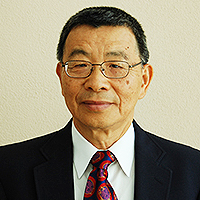Impact of Pacemaker Implantation on 12-Month Resource Utilization Following TAVR Hospitalization
Published on: 21st October, 2019
OCLC Number/Unique Identifier: 8286124047
Purpose: This study reports resource utilization during a Medicare Beneficiary’s (MBs) Transcatheter Aortic Valve Replacement (TAVR) index hospitalization and all subsequent encounters for 12 months and compares data between MBs who did or did not receive a pacemaker implantation (PPM) during their index hospitalization.
Method: This retrospective study examined Medicare hospital claims from January 1, 2014 through June 30, 2015. 15,533 MBs who survived for 365 days were studied. Information from all encounters during the study period was combined to compare hospital resource utilization and outcomes.
Results: 14.8% of MBs had a PPM during the index hospitalization. 46.0% of MBs had at least one readmission to a hospital during the 365-day follow-up period. 54.6% of MB’s first hospital readmission occurred within 90 days of their TAVR discharge date. Average total Medicare reimbursement for all hospitalizations was $60,638 ± $28,974 associated with average total hospital length of stay of 11.2 ± 11.7 days. After adjusting for demographics and 47 comorbid conditions, MBs receiving a PPM during the index TAVR had significantly higher estimated Medicare reimbursement ($5,132) and longer total length of stay (1.8 days) for the entire study period than MBs not receiving a PPM.
Conclusion: Total Medicare reimbursement and hospital LOS were significantly higher among MBs that had a PPM implantation during their index admission; however, there were no significant differences in readmission rates, readmission length of stay, or days to first readmission during the follow-up period between the two study cohorts.
Addressing the disparities and the factors related to prolonged inpatient length of stay for solid tumor oncology patients during the COVID-19 pandemic: A narrative review
Published on: 17th September, 2021
OCLC Number/Unique Identifier: 9272370671
Solid tumor oncology treatments are primarily performed in the outpatient setting. However, hospitalizations are inevitable due to complications of cancer and treatment-related toxicities. With rising health care spending, the length of hospital stay (LOS) is increasingly considered a proxy for healthcare costs. There are several ongoing efforts to abbreviate the inpatient LOS and ensure a safe and timely discharge to the outpatient setting. In addition to the acute illness and the associated comorbidities, various factors affect the LOS: social determinants of health (SDOH), nutritional status in cancer patients, and end-of-life issues. Furthermore, it is unclear how the institutional policies on social distancing and visitation during the current coronavirus disease (COVID-19) pandemic may impact the LOS. The purpose of this article is to review various factors and barriers that lead to longer LOS for solid tumor patients during the COVID-19 pandemic, and identify the critical areas of quality improvement.
Proactive Psychiatric Consultation and Hospital Length of Stay in Adults: A Review of the Literature
Published on: 4th October, 2024
According to a 2022 systematic review on the prevalence of psychiatric disorders in general hospitals, it was estimated that approximately one-third of medical inpatients present with a coinciding psychiatric condition. However, other studies have reported that a low rate of patients actually obtain an inpatient psychiatric consult; and even fewer patients receive a consultation when it would not be traditionally indicated. Therefore, we have seen an emergence of the use of Proactive Consultation-Liaison (C-L) Psychiatry across many hospital settings. This model of care utilizes systematic screening for active mental health concerns, proactive interventions tailored to individual patients, team-based delivery, and care integration with primary services to provide psychiatric consultation earlier. This study conducted a focused PubMed search to review the research to date on proactive C-L psychiatry and its impact on hospital length of stay (LOS) in patients over 18 years old. Results show a consequential reduction in average hospital LOS when proactive C-L psychiatry services are used compared to reactive, on-request consultation services. A shortened LOS is seen with this practice when there is a quicker time for consultation or referral. Thus, there is evidence of proactive C-L psychiatry’s success in decreasing average hospital LOS and improving patient care. Additional studies are necessary to determine its significance, as little research to date has been completed on the topic. It is recommended to expand the scope of investigation to different patient populations, including but not limited to pediatrics and patients without an underlying mental health illness.
















